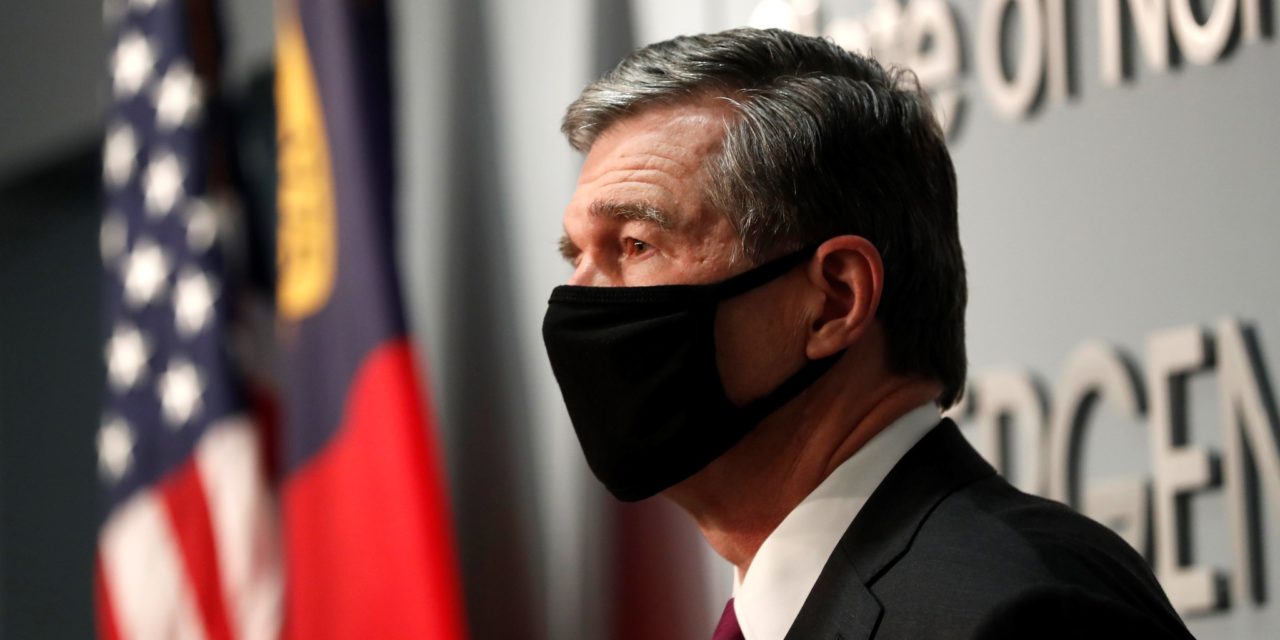Earlier this week, North Carolina Governor Roy Cooper announced a nightly curfew will be put in place for the state amid rises in new COVID-19 cases and other increasing statewide trends.
Cooper and Dr. Mandy Cohen, the secretary for the North Carolina Department of Health and Human Services, said the record-breaking single-day numbers for new cases and hospitalizations within the state spurred the change. Currently, 48 counties within the state are listed as experiencing “critical” community spread. Cohen also said any potential spread of coronavirus from Thanksgiving gatherings may also not be reflected in these trends, indicating further worsening of trends could be seen.
Here’s what North Carolinians need to know about the new stay-at-home measure and additional changes from the executive order.
What’s the curfew?
The modified stay-at-home order for the state implements a curfew for North Carolina residents and asks them to remain at residences from 10 p.m. to 5 a.m. unless an exception applies.
Additionally, most businesses are required to close at 10 p.m. and all on-site alcohol sales for restaurants must end at 9 p.m.
Live entertainment performances or events, such as movie screenings, and youth and amateur sporting events must stop no later than 10 p.m. as well. Professional or collegiate sports being played are allowed past 10 p.m.
What are the exceptions?
The executive order’s early closure does not apply to businesses that sell groceries, medication, fuel, or health care supplies. Businesses can also remain open after 10 p.m., as long as they do not welcome guests or customers onto their premises.
North Carolina residents who are traveling to and from work or obtaining food, medical care, fuel and social services past 10 p.m. will also be exempt from the stay-at-home order.
Individuals experiencing homelessness are also exempt from the curfew.
What happens if I’m out past the curfew for a non-exempted reason?
From the language of the executive order, law enforcement “are directed to enforce this Subsection 4.3 of the Executive Order against individuals only in cases of willful or repeated violations.”
What happens if cases continue to rise?
Cooper said his administration is not against additional restrictions if COVID-19 cases continue to rise in North Carolina.
“I think most North Carolinians want to do the right thing,” said Cooper. “If we’re saying it’s really important for you to be home after 10 p.m. and not to be gathering in other places, I think a lot of North Carolinians will do that. We have other things we can do, we have more tools we can use to fight the spread of this virus. But we think if we do this and people abide by it, then it’ll make a positive difference.”
Cooper’s new executive order is initially slated to last until January 8.
Photo via the North Carolina Department of Public Safety.
Chapelboro.com does not charge subscription fees. You can support local journalism and our mission to serve the community. Contribute today – every single dollar matters.
Related Stories
‹
![]()
Lawsuit Filed to Block NC Governor's Order on ChurchesConservative Christian leaders sued North Carolina Gov. Roy Cooper on Thursday to get thrown out his latest restrictions on indoor religious services during the COVID-19 pandemic. They argue the limits, initiated by Cooper with health in mind, violate their rights to worship freely. Two Baptist churches, a minister and a Christian revival group filed the […]
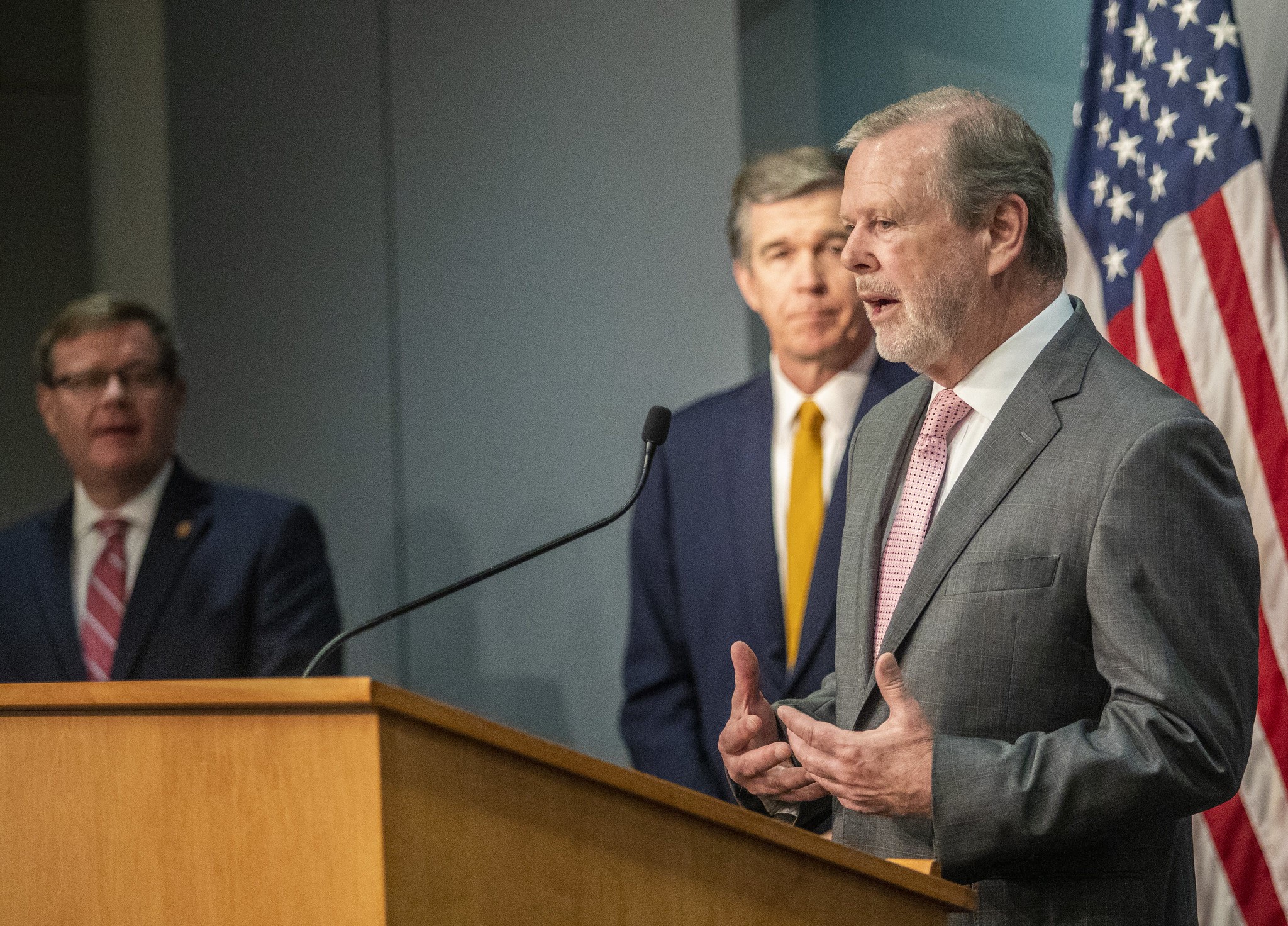
Sen. Berger Asks Gov. Cooper to Let Counties Reopen BarbershopsOne of North Carolina’s most powerful Republican elected officials has called on Democratic Gov. Roy Cooper to give county governments the ability to reopen barbershops and hair salons now. Senate leader Phil Berger said on Wednesday that most Southeastern states have allowed these personal service businesses to reopen in some capacity. They are mostly run […]
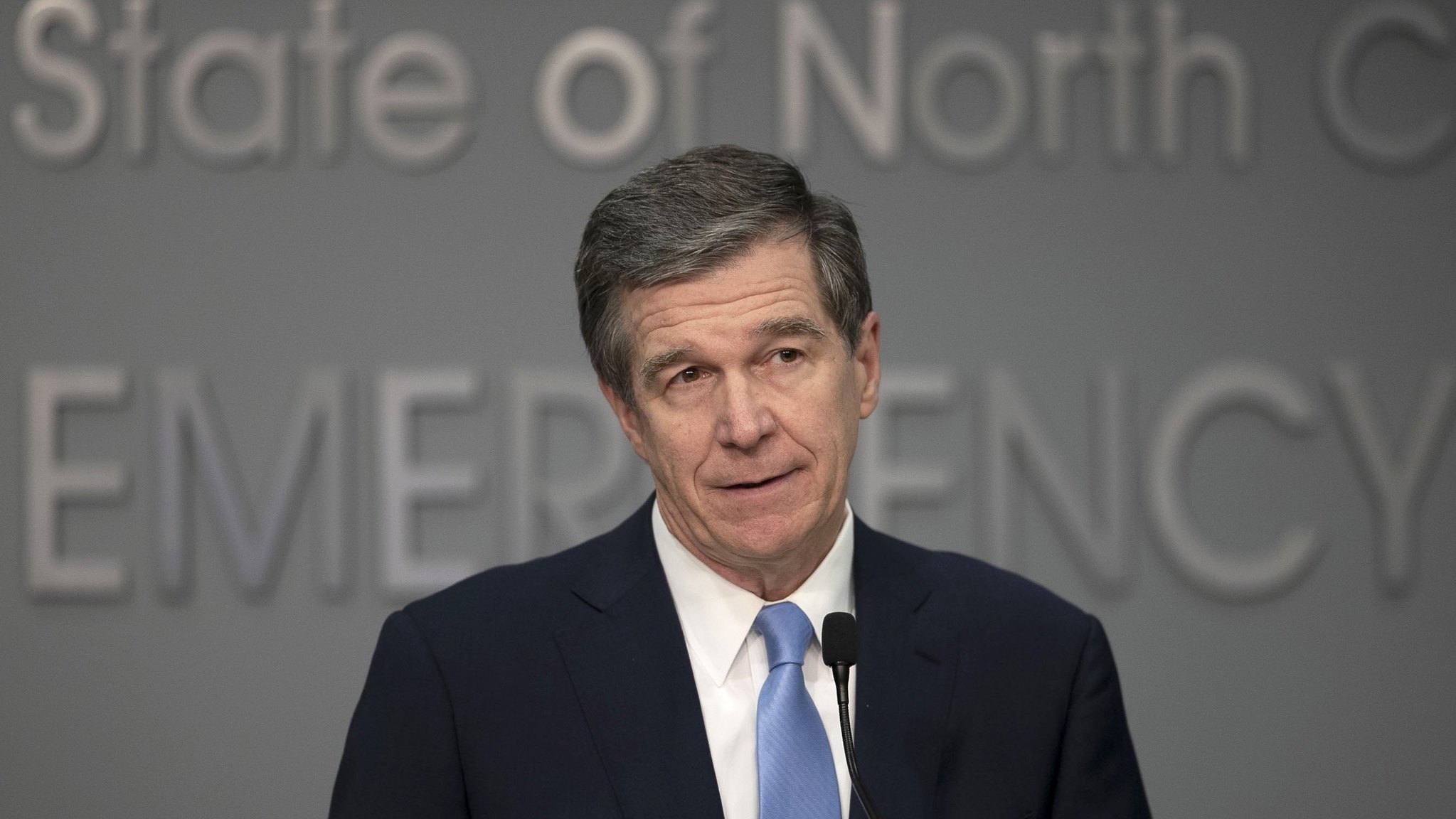
Governor Cooper Defends Rules for Businesses, ChurchesStating “pandemics cannot be partisan,” North Carolina Democratic Gov. Roy Cooper on Tuesday defended his eased stay-at-home order as criticism mounted from elected Republican officials and demonstrators who gather weekly outside his home. Cooper’s altered COVID-19 order, which took effect Friday, allowed more businesses to open to customers as long as social distancing rules are […]

University Place Shares Plans for Limited Reopening with NC's Phase 1University Place will be among the businesses to reopen as the rest of North Carolina begins its Phase 1 this weekend. The shopping center will be opening in a limited capacity starting Saturday, May 9, at 10:30 a.m., with some businesses still remaining closed due to Governor Roy Cooper’s executive order. Some businesses with interior […]
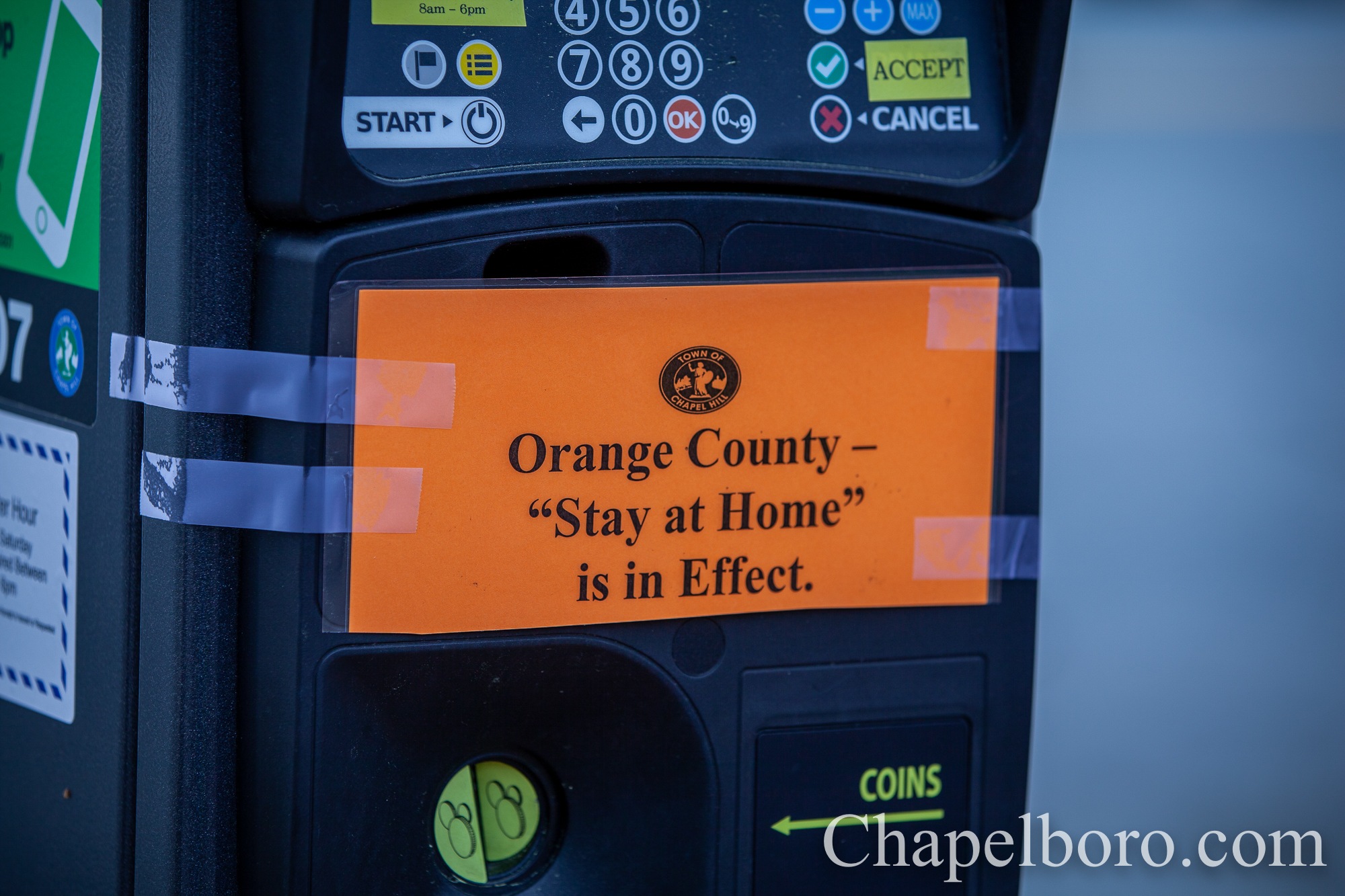
Orange County to Follow NC's Phase 1 Guidelines, Ending County Stay-Home OrderOrange County will end its stay at home order on Friday, May 8, to allow residents to fully comply with state guidance as it enters Phase 1 of gradual reopening. The county shared a release on Wednesday acknowledging it will let the county order expire, but reminding residents they still fall under the statewide stay […]
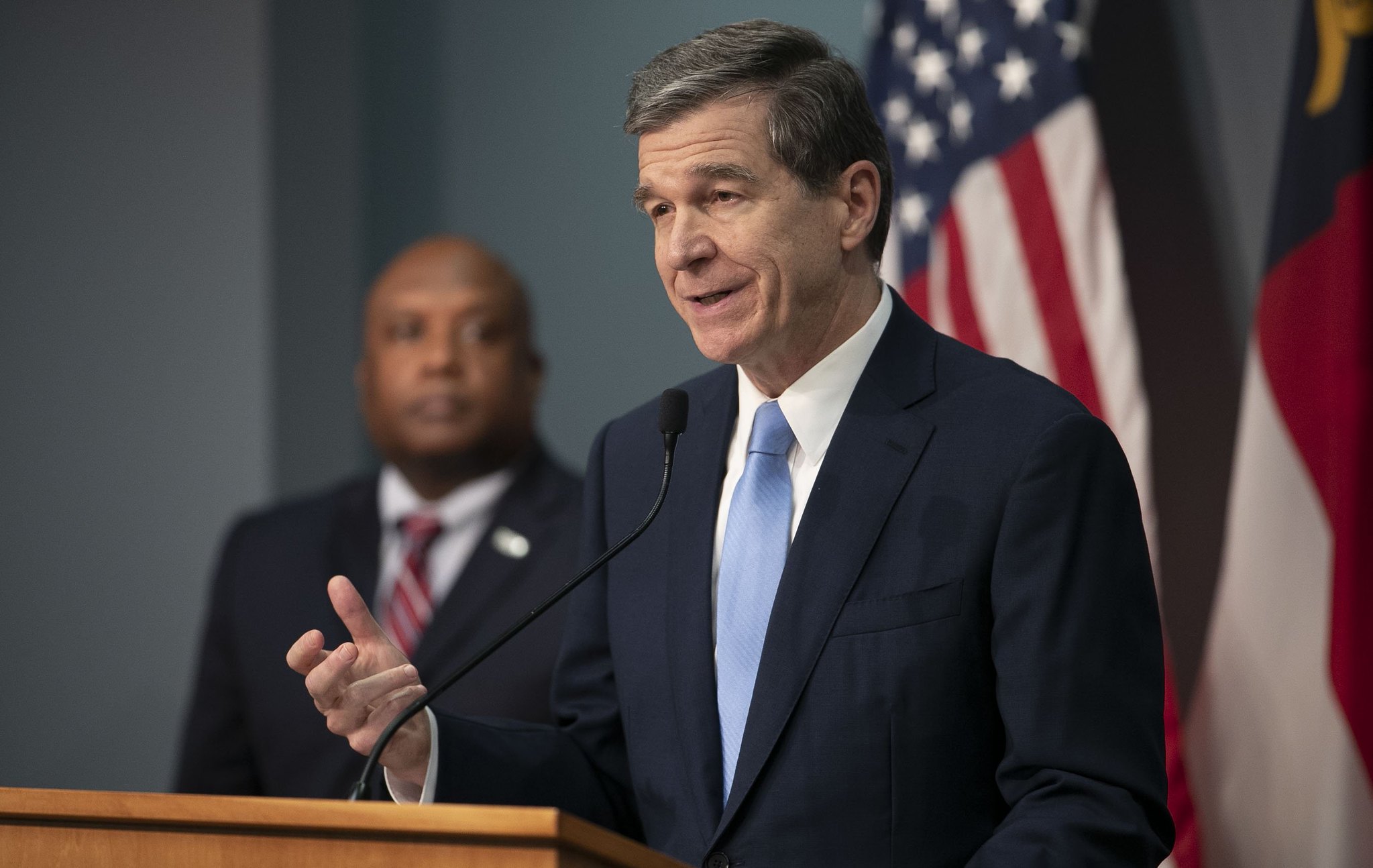
Gov. Cooper: North Carolina to Move to Phase 1 Beginning FridayNorth Carolina Governor Roy Cooper said he will sign an executive order for the state to enter Phase 1 of lifting the restrictions issued during the COVID-19 pandemic. Cooper said North Carolinians’ efforts to stay home, use face coverings and physically distance themselves when in public have affected the virus’ spread enough to move into […]

Orange County Extends Stay at Home Order to Coincide with North Carolina'sOrange County extended its county-wide stay at home order past its initial April 30 expiration date. County officials, in cooperation with the mayors of Chapel Hill, Carrboro and Hillsborough, decided to extend the order until May 8, according to a release from Orange County. The new length of the order coincides with the extension of […]
![]()
Cooper Extends Stay at Home Order, Lays Out Phases to Lift RestrictionsNorth Carolina Governor Roy Cooper extended the statewide stay at home order, but shared a plan on Thursday to gradually ease the state back into business as COVID-19 cases lessen. Cooper held a press conference with health officials where he announced how North Carolina will begin its “new normal” once increased testing, tracing and tracking […]
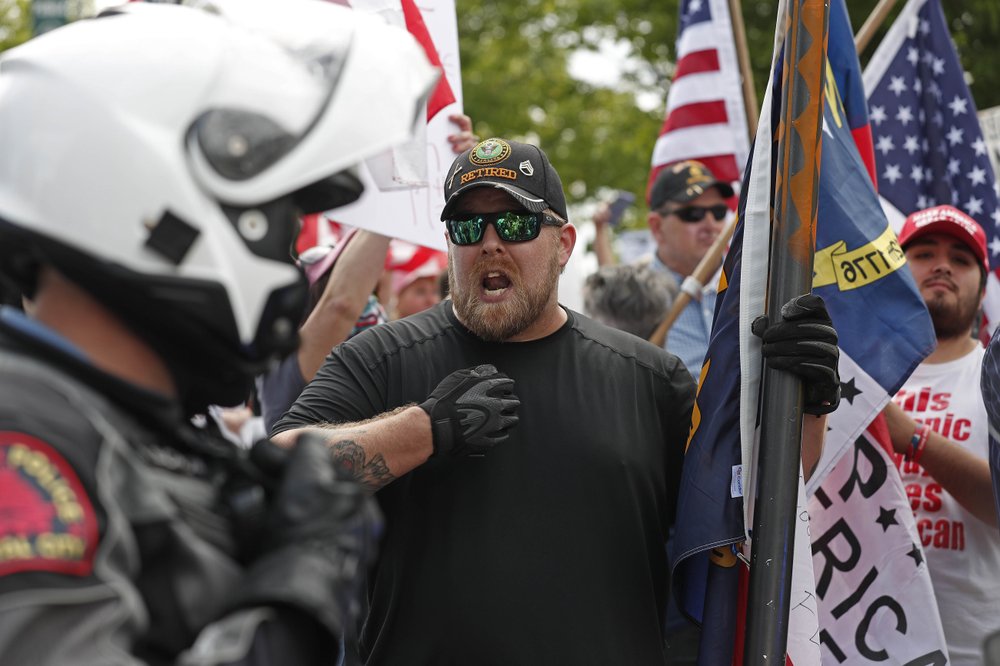
Hundreds Demand North Carolina Governor End Stay at Home OrderHundreds of people angry and frustrated with North Carolina Gov. Roy Cooper’s stay-at-home order designed to blunt COVID-19 marched on Tuesday around his home, demanding that he cancel it now to unleash the state’s economy. Carrying placards and banners and chanting, the crowd gathered in a parking lot before being escorted by Raleigh police motorcycles to walk […]
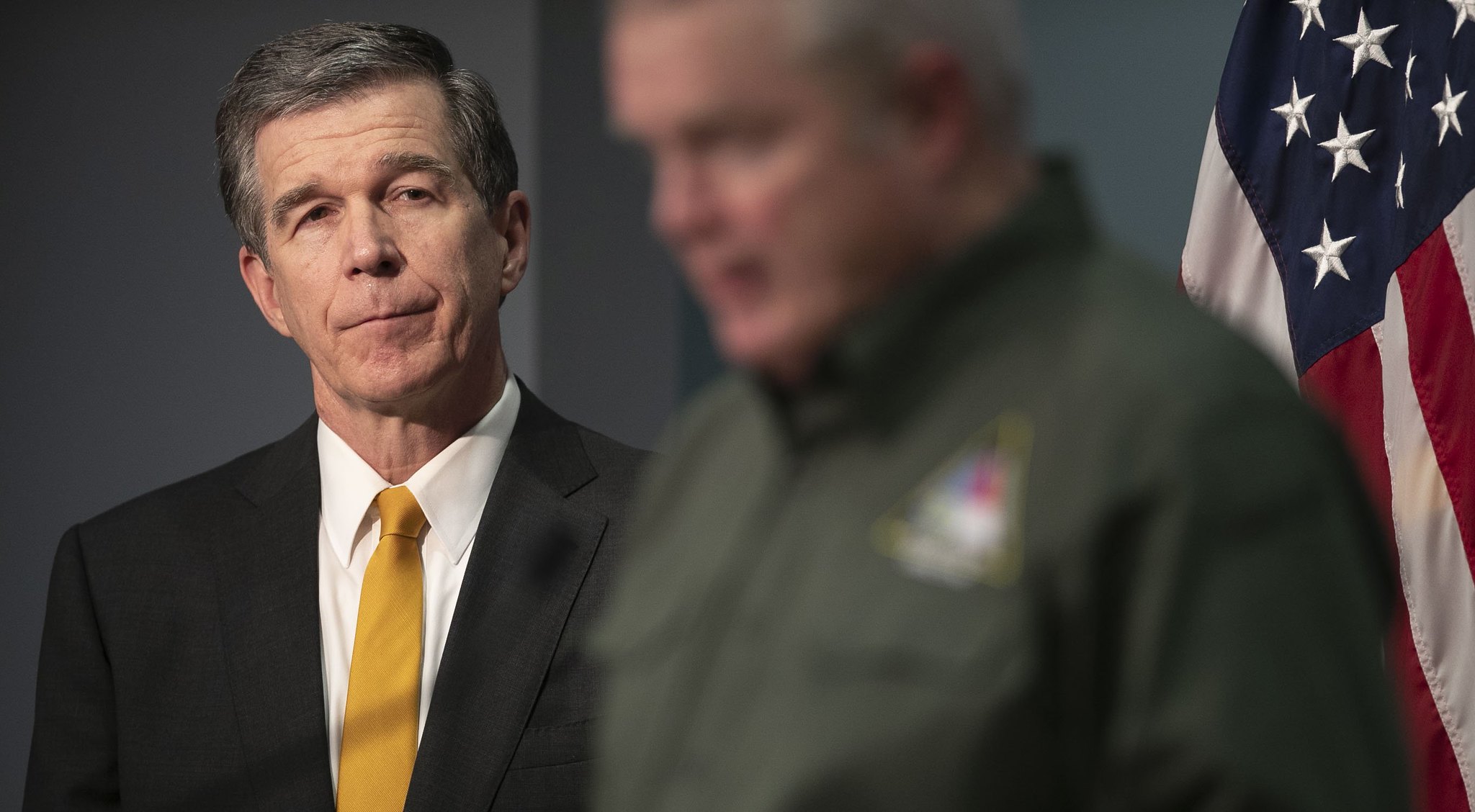
Cooper Signs Order to Help Furloughed Workers, Says Decision on Stay at Home Extension Coming SoonNorth Carolina Governor Roy Cooper signed a new executive order on Tuesday aimed to help workers furloughed by employers amid the COVID-19 pandemic. He also spoke about the budget proposal his administration plans to make at the General Assembly’s meeting next week and when a decision will be shared regarding the state’s stay at home […]
›

